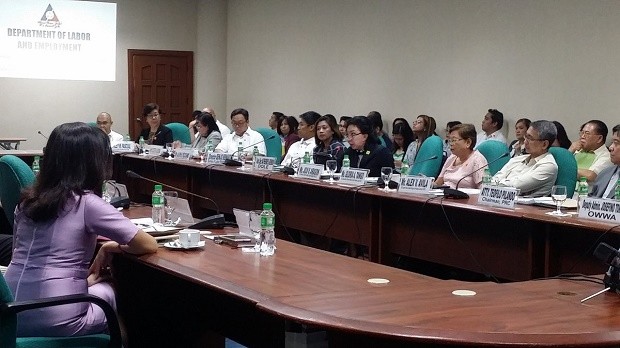DOLE admits it lacks means to detect illegal contracting practices
MANILA, Philippines — The Department of Labor and Employment (DOLE) on Wednesday conceded that it lacked mechanisms to promptly detect red flags on contracted labor, vowing to work with the legislature to plug loopholes in existing laws that allow the practice of “endo” or “end-of-contract” hiring to persist.
During an organizational meeting of the Senate committee on labor, employment and human resources development, Labor Undersecretary Joji Aragon admitted that the her agency has no means to readily detect illegal contracting practices.
“The mechanism to detect red flags is not present,” Aragon told the committee Wednesday morning.
At this point, Drilon chimed in, pointing out weaknesses in rules governing contractualization.
“They do not consider certain forms of labor-only contracting as illegal or prohibited. That is why there is no mechanism to find red flags,” he said.
Article continues after this advertisementREAD: Drilon hits DOLE order giving labor-only contracting ‘false legitimacy’
Article continues after this advertisementOn orders of President Rodrigo Duterte, Labor Secretary Silverte Bello III is aiming to eradicate by next year the widespread practice of “endo,” or the periodic rehiring of workers for the same jobs without affording them opportunities for regularization.
Sen. Joel Villanueva, the committee chair, said efforts were particularly targeting “endo” and not other forms of legal contracting, such as project-based hiring or the temporary employment of workers for specific roles.
“What we’re after here is the evils of contractualization, where after six months, you will be fired, and then you are rehired, the same job description, the same person,” he said in an interview.
During the meeting, labor officials conceded that the practice is prevalent despite a 1974 Presidential Decree clearly barring it, and regulations on contractual employment set forth under the Labor Code of the Philippines and Department Order 18-A.
Aragon asserted that short-term contracting is illegal and said efforts were underway to review labor practices of registered contractors and subcontractors.
Priority sectors are industries identified to be rife with “endo” employment, such as hotels, food chains, manufacturing, malls, plantations, and corporate farms.
Benjo Benavidez, Director at DOLE’s Bureau of Labor Relations, said the agency has initiated a three-month review of the DO 18-A, which lays down guidelines on legal forms of contracting.
Aragon said DOLE has a list of 5,150 registered contractors deploying 416,343 workers under 26,194 principals. CDG
